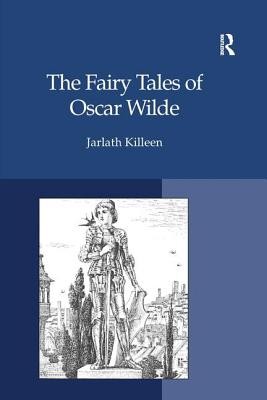
- We will send in 10–14 business days.
- Author: Jarlath Killeen
- Publisher: Routledge
- ISBN-10: 0754658139
- ISBN-13: 9780754658139
- Format: 15.6 x 23.4 x 1.3 cm, kieti viršeliai
- Language: English
- SAVE -10% with code: EXTRA
Reviews
Description
Oscar Wilde's two collections of children's literature, The Happy Prince and Other Stories (1888) and A House of Pomegranates (1891), have often been marginalised in critical accounts as their apparently conservative didacticism appears at odds with the characterisation of Wilde as an amoral aesthete. In this, the first full-length study of Wilde's fairy tales for children, Jarlath Killeen argues that Wilde's stories are neither uniformly conservative nor subversive, but a blend of both. Killeen contends that while they should be read in relation to a literary tradition of fairy tales that emerged in nineteenth century Europe; Irish issues heavily influenced the work. These issues were powerfully shaped by the 'folk Catholicism' Wilde encountered in the west of Ireland. By resituating the fairy tales in a complex nexus of theological, political, social, and national concerns, Killeen restores the tales to their proper place in the Wilde canon.
EXTRA 10 % discount with code: EXTRA
The promotion ends in 22d.19:46:10
The discount code is valid when purchasing from 10 €. Discounts do not stack.
- Author: Jarlath Killeen
- Publisher: Routledge
- ISBN-10: 0754658139
- ISBN-13: 9780754658139
- Format: 15.6 x 23.4 x 1.3 cm, kieti viršeliai
- Language: English English
Oscar Wilde's two collections of children's literature, The Happy Prince and Other Stories (1888) and A House of Pomegranates (1891), have often been marginalised in critical accounts as their apparently conservative didacticism appears at odds with the characterisation of Wilde as an amoral aesthete. In this, the first full-length study of Wilde's fairy tales for children, Jarlath Killeen argues that Wilde's stories are neither uniformly conservative nor subversive, but a blend of both. Killeen contends that while they should be read in relation to a literary tradition of fairy tales that emerged in nineteenth century Europe; Irish issues heavily influenced the work. These issues were powerfully shaped by the 'folk Catholicism' Wilde encountered in the west of Ireland. By resituating the fairy tales in a complex nexus of theological, political, social, and national concerns, Killeen restores the tales to their proper place in the Wilde canon.


Reviews